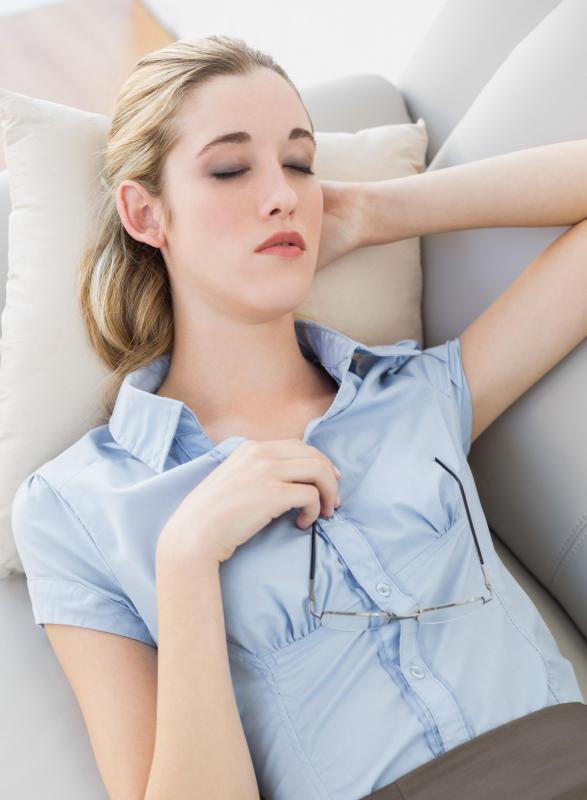At WiseGEEK, we're committed to delivering accurate, trustworthy information. Our expert-authored content is rigorously fact-checked and sourced from credible authorities. Discover how we uphold the highest standards in providing you with reliable knowledge.
What are the Most Common Causes of Dizziness and Balance Problems?
A wide variety of diseases, illnesses and other conditions can contribute to dizziness and balance problems in an individual. These symptoms might be the result of a more serious condition and should not be ignored. Common causes of lightheadedness and difficulties with balance include a variety of inner ear problems, as well as possible neurological conditions. Additionally, faintness, spinning or balance problems may be attributed to some psychological disorders.
Dizziness and balance problems associated with the inner ear might be the result of a condition called benign paroxysmal positional vertigo. This is one of vertigo's most common causes, and it is characterized by a brief spinning sensation or faintness upon moving the head or turning quickly. Another inner ear condition that might cause lightheadedness is Meniere’s disease, a condition in which fluid collects in the ear. Meniere’s disease might cause a sudden occurrences of vertigo that can last for several hours. An infection of the inner ear, sometimes referred to as labyrinthitus, can also result in problems with balance and cause dizziness.

In more serious instances, dizziness and balance issues might be the result of a neurological condition, such as multiple sclerosis, a brain tumor or a stroke. Other serious neurological issues, such as a brain hemorrhage or normal pressure hydrocephalus, can also be the reason for problems with balance or lightheadedness. If a neurological condition is the cause, dizziness and a loss of balance will most likely be accompanied by other symptoms, such as headaches, double vision, numbness in the facial region and slurred speech.

Some psychological disorders can also produce dizziness or lightheadedness. Panic attacks and phobias, such as a fear of open spaces or claustrophobia, might cause an individual to become dizzy or lightheaded. By contrast, the vertigo itself can also be the trigger of the anxiety. For example, if the dizziness is initially the result of another cause, such as an inflammation of the inner ear, the vertigo might be prolonged by feelings of anxiety that arise out of the situation.

A large number of other conditions can cause an individual to suffer from dizziness and/or balance problems. These might include diabetes, low blood pressure or a variety of heart conditions. Some medications and treatments might also be the reason for a loss of balance or lightheadedness in individuals. Muscle or joint weakness and sensory disorders are the most common causes of dizziness and balance problems in the elderly.
AS FEATURED ON:
AS FEATURED ON:

















Discussion Comments
Fainting or dizziness can be caused by your blood pressure. If you have high blood pressure, it could be fluctuating constantly during the day, going up, and/or going down at different times of the day. Dizziness can be a result of high blood pressure, as well as low blood pressure, as this article fails to mention. Blood pressure medication can also cause a major amount of dizziness as it attempts to control your blood pressure throughout the day.
This could be a condition called Micturition syncope. It is a fairly rare condition caused by a dramatic decrease in blood pressure directly after urinating.Your BP may return to normal later, which could be why you do not show any change in BP. Micturition syncope occurs most often after the individual has been sleeping or resting and gets up to urinate. It is most common in older men, but can occur in women as well. An examination by a doctor is the best way to determine the exact cause.
I fainted twice during in November, over four days. Earlier fainting was during 2008. On all occasions i fainted during urination. I recover in few seconds. Luckily, twice with out any suffering, but once i had leg fracture. Kindly advice why I am fainting only during Urination. No sugar, BP and no inner ear problem, as confirmed by doctors.
Post your comments